A selection of the ECRs from across the Biodiscovery Institute Themes
BDI has a large and growing population of early career researchers across all six of its research themes, who make a very significant contribution to all aspects of the work that we do, and the BDI community. We take very seriously our role of training the next generation of researchers; below we have featured a few from each of our six research themes, to demonstrate the breadth and depth of research talent within BDI.
Defeating cancer
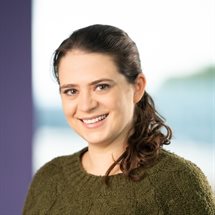 Jennifer Ashworth
Jennifer Ashworth is an Anne McLaren fellow, working cross-school between the School of Veterinary Medicine & Science and the School of Medicine. With a background in materials science, her main research interest is developing tissue-mimetic biomaterials for 3D cell culture, for application to cancer research and the study of fibrotic diseases.

Isiome Egbuniwe is an NIHR-funded academic clinical lecturer in histopathology. She is currently working as part of the Nottingham Cholangiocarcinoma Research Consortium; her overarching research goal is the identification of new therapeutic and prognostic targets in this cancer.
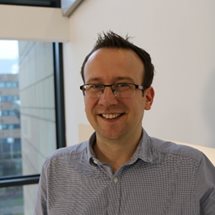
Tim Ritzmann is an NIHR-funded academic clinical lecturer in paediatric neuro-oncology. His current research is focused on paediatric ependymoma, which is the second most common brain tumour of childhood. He was awarded the UK’s Children’s Cancer and Leukaemia Group Young Investigator Award in 2022 for collaborative work with a team in Denver, Colorado on the ependymoma immune environment.

Sarah Storr is Assistant Professor in Cancer Sciences following completion of a Nottingham Research Fellowship in May 2022. Her current research is focussed on investigating the role of DARPP-32 in cancer, understanding how loss of expression contributed to changed cancer cell behaviour; and understanding DARPP-32 in the setting of addiction to drugs of abuse.
Demystifying biomolecular complexity
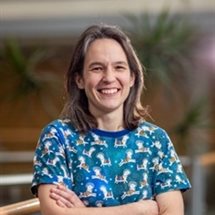
Rachel Clifford started her Anne McLaren Fellowship in June 2020. Rachel’s research focuses on understanding epigenetic mechanisms of gene expression in relation to lung disease and responses to inhaled exposures. She is also interested in using epigenetic marks as biomarkers of disease, cell type and age.

Kavita Raniga is an industrial CASE PhD student working in collaboration with GlaxoSmithKline on developing complex models for enhanced predictive drug-induced cardiotoxicity screening using hPSC-derived cardiac cells. Alongside her research Kavita leads on Project Period, aiming to reduce the sigma of menstruation and menopause in the workplace and alleviate period poverty.
Engineering Biology
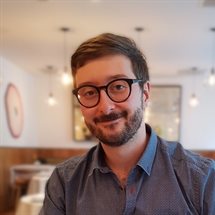
Ben Blount is a Nottingham Research Fellow in the School of Life Sciences, using Engineering Biology and Synthetic Genomics to uncover fundamental insights and develop strains for biotechnology applications.
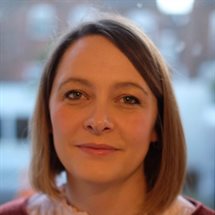
Alex Faulds-Pain is a Senior Research Fellow in the School of Life Sciences, using Engineering Biology for biomanufacturing including in combination with Glycotechnology to develop new vaccine candidates.
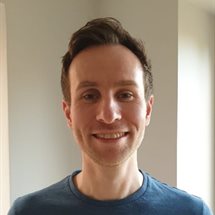
Chris Humphreys is a Senior Research Fellow in the School of Life Sciences, specialising in developing Clostridial genetic tools and engineered acetogens for industrial biotechnology.
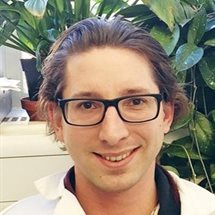
Ellis O’Neill is an Assistant Professor in the School of Chemistry, having previously been a Nottingham Research Fellow. He is working at the chemistry/biology interface on algal biotechnology and compounds useful as food supplements, materials and antibiotics.
Pioneering Therapeutics
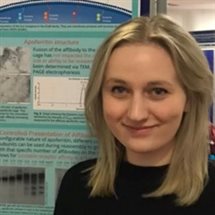
Isobel Holden completed an EPSRC CDT PhD in advanced therapeutics and nanomedicines in the BDI and currently holds an EPSRC Doctoral Prize Fellowship to create targeted magnetoferritins for selective, potent treatment alongside enhanced MRI imaging of breast cancer.
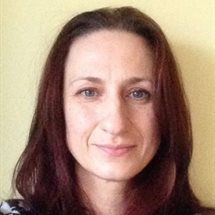
Anna Malecka first came to UoN in 2010 as an MSc student in Cancer Immunology and Biotechnology and continued her career at UoN through PhD and later working as a Research Fellow. In April 2022 Anna was appointed Assistant Professor in Immunology at the School of Veterinary Medicine and Science. Her research focuses on deciphering the crosstalk between immune cells and their environment and its role in the development of cancer and infections in humans and animals with the aim of finding new therapeutic targets.
Regenerating and Modelling Tissues

Akhil Jain is a research fellow in Dr Frankie Rawson’s group. Akhil's research focuses on developing new bioelectronics-based approaches to modulate cell function by using bioelectronics, nanotechnology, material & surface chemistry, bioelectronics, and cell biology. In future, he wants to apply this research to develop quantum converting nanomaterials for sensing, diagnostics, and therapeutics.
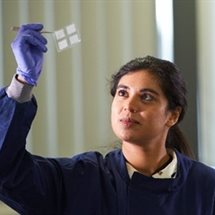
Aishah Nasir is a research fellow (Profs Chris Denning and Morgan Alexander’s groups) works across multidisciplinary fields to develop biomaterial model systems of children’s brain tumours, stem cells and cardiomyocytes to improve pre-clinical testing or develop novel medical devices. Her current Engineering and Physical Sciences Research Council-funded research aims to aims to identify animal-free surfaces to support clinical grade human pluripotent stem cell (hPSC) generation and development of heart-in-a-dish platforms for cardiac disease modelling and is currently exploring its commercialisation potential through an Impact Accelerator Account funding.
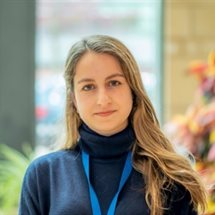
Helena Rouco is a Margarita Salas postdoctoral fellow in Professor Alvaro Mata’s group. Her current research aims are to develop 3D in vitro platforms for cell culture via multicomponent self-assembly, as well as on the manufacturing of microfluidic devices by combining molecular self-assembly and 3D printing.
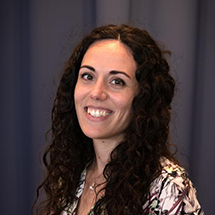
Sara Cuevas Ocaña is a research fellow in Dr. Nick Hannan's group. Her research focuses on utilizing advanced genome editing technologies to genetically modify induced pluripotent stem cells (iPSCs) with greater precision and efficiency compared to the conventional CRISPR-Cas9 approach. She is currently investigating the role of genetics in the development of idiopathic pulmonary fibrosis by generating patient-specific iPSC-derived in vitro lung models. In addition, her 3DbioNet funded research aims to complement these in vitro models with native lung-derived extracellular matrix (ECM) hydrogels to explore the impact of healthy and diseased ECM in respiratory diseases.
Taming Microbes
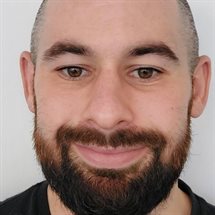
Sam Fenn received his PhD as part of the Wellcome Trust Antimicrobials and Antimicrobial Resistance DTP programme here at the University of Nottingham in 2022. His research focused on characterising novel therapeutic targets in the problematic multi-drug resistant pathogen Pseudomonas aeruginosa. He continued his fascination of the heterogeneous nature of the infection microenvironment and the role of diminishing oxygen availability in disease establishment and progression as a Fellow with National Biofilms Innovation Centre with Professor Miguel Cámara. Sam has secured a five year role as a Research Fellow at University College Cork, Ireland in the APC Microbiome Centre where he will be researching similar themes in the Gram positive pathogen Staphylococcus aureus and Streptococcus pneumoniae.'
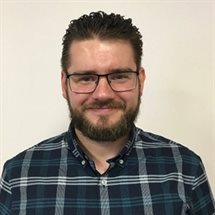
Shaun Robertson moved to Nottingham in 2018 as an Innovation Research Fellow with the National Biofilms Innovation Centre (NBIC). His research focused on understanding polymicrobial biofilm interactions, through developing a simplified model to allow manipulation of these communities under relevant environmental conditions. Through NBIC Shaun has had extensive industrial engagement on successful proof of principle projects. His keen interest in commercialisation of research supported by NBIC training programmes underpinned the successful award of an Innovate UK iCURe fellowship. Shaun is currently taking the lead on the development of a rapid diagnostic for Pseudomonas aeruginosa in people with Cystic Fibrosis. He is developing a business plan and securing funding to launch a spinout company in 2024 while continuing research to identify markers for other microbial pathogens.